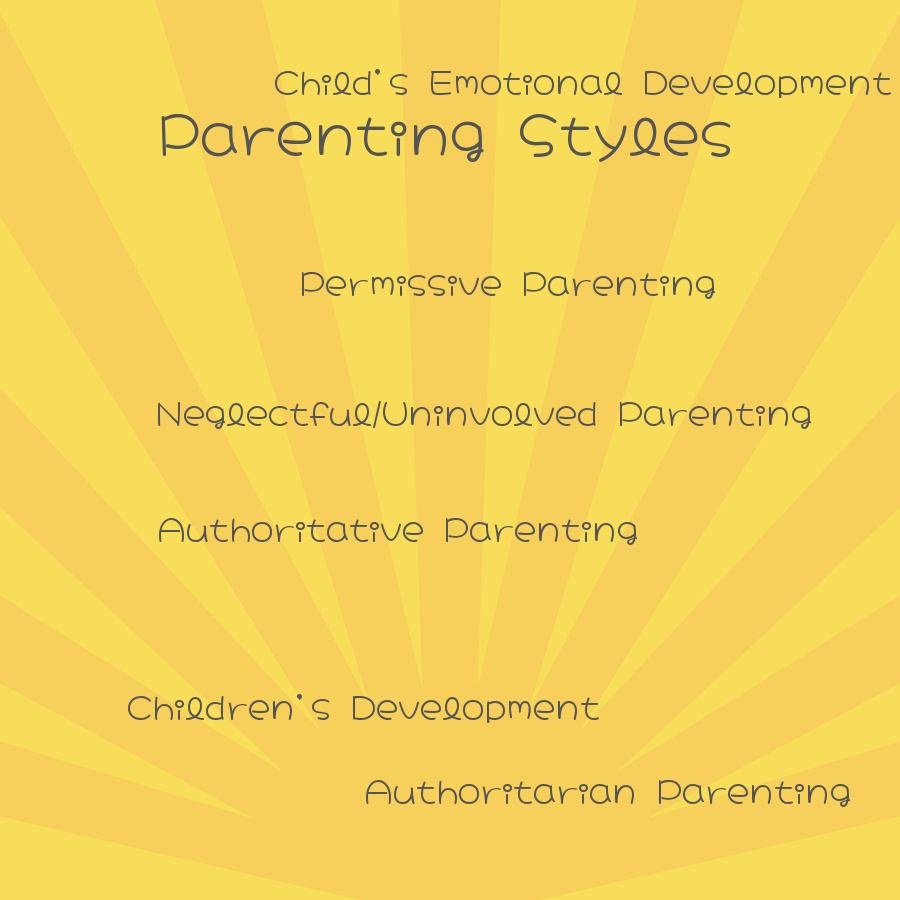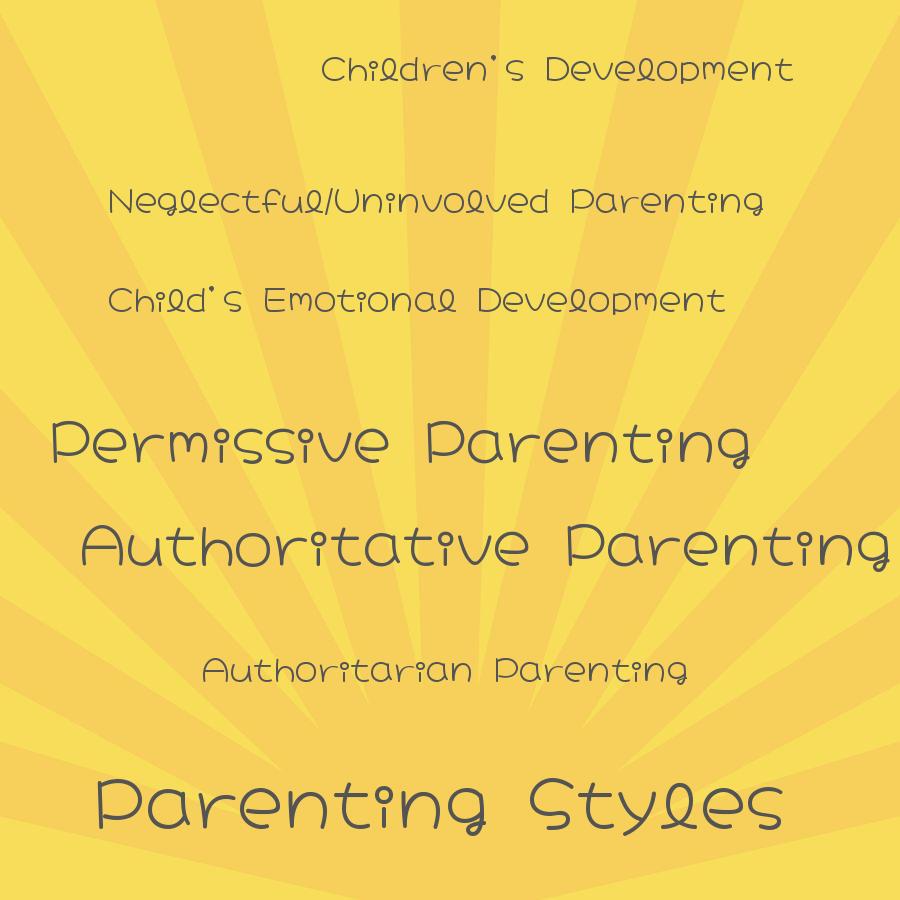Parenting styles can have a significant impact on children’s development. Authoritative parenting, where parents set clear rules and boundaries while also being supportive, tends to lead to positive outcomes for children. In contrast, authoritarian parenting, where rules are strict and punishment is used frequently, can lead to negative outcomes such as anxiety and low self-esteem. Permissive parenting, where there are few rules and little structure, can also have negative consequences such as poor academic performance and behavioral problems.
As a child, I vividly remember the different parenting styles of my friends’ parents. Some were strict and authoritarian, while others were more laid-back and permissive.
It wasn’t until later in life that I realized how much these parenting styles can affect a child’s development.
I had a friend who grew up with strict parents who had high expectations for her academic performance. While she excelled in school, she struggled with anxiety and self-esteem issues due to the constant pressure from her parents.
On the other hand, I had another friend whose parents rarely enforced rules or boundaries, leading to her struggling with discipline and responsibility as she got older.
These experiences made me curious about how different parenting styles can impact children’s development in various ways. In this blog post, we’ll explore some of the most common parenting styles and their effects on children’s emotional, social, and cognitive growth.
So buckle up for an informative ride!
Here You Will Learn:
Authoritarian Parenting


One of the most common parenting styles is authoritarian parenting. This style is characterized by strict rules and high expectations, with little room for negotiation or discussion.
Parents who adopt this approach often use punishment as a means of discipline and may be less responsive to their child’s emotional needs.
As I mentioned earlier, my friend who grew up with strict parents was an example of authoritarian parenting in action. While her parents had good intentions and wanted her to succeed academically, their rigid approach left little room for creativity or self-expression.
As a result, she struggled with anxiety and low self-esteem throughout her childhood.
Research has shown that children raised under authoritarian parenting tend to have lower levels of social competence compared to those raised under other styles such as authoritative or permissive parenting (Baumrind 1991). They may also struggle with decision-making skills later in life due to not having been given opportunities during childhood where they could make choices on their own.
While there are some benefits associated with this style – such as higher academic achievement – it’s important for parents using it not only consider its potential negative effects but also balance it out by being more responsive towards the emotional needs of their children.
Permissive Parenting
Permissive parenting is a style where parents are lenient and have few rules or expectations for their children. As I mentioned earlier, I had a friend who grew up with permissive parents.
While she enjoyed the freedom to do what she wanted, it also meant that there were no boundaries in place to guide her behavior. Children of permissive parents often struggle with discipline and self-control as they grow older because they haven’t learned how to regulate their own behavior.
They may also have difficulty making decisions since they’re used to having someone else make choices for them. Children of permissive parents may struggle socially because they haven’t been taught appropriate social skills or how to interact with others respectfully.
This can lead them into trouble when interacting with peers or authority figures later in life. While some aspects of permissive parenting can be positive (such as fostering independence), it’s important for these types of parents not only set limits but also provide guidance on decision-making and social interactions so that their child develops healthy habits early on in life.
Authoritative Parenting
One of the most effective parenting styles is authoritative parenting. This style involves setting clear rules and boundaries while also being warm, supportive, and responsive to a child’s needs.
Children raised by authoritative parents tend to have high self-esteem, good social skills, and strong academic performance.
I remember my friend Sarah who had an authoritative mother. Her mom was strict about homework time but always made sure that Sarah understood the importance of education rather than just forcing her to study for hours on end without any explanation or support.
Sarah’s mom would often sit with her during homework time and help her understand difficult concepts instead of just giving answers outright. As a result, Sarah developed excellent problem-solving skills that helped her excel in school as well as in life.
Moreover, because she knew what was expected from her at home due to clear communication from both sides (parent-child), she felt confident enough to express herself freely outside the house too – something not all children feel comfortable doing when they grow up under authoritarian or permissive parents’ influence.
Authoritative parenting can be challenging since it requires finding balance between discipline and warmth; however if done correctly it can lead towards positive outcomes for children’s development such as higher self-esteem levels along with better social & cognitive abilities!
Neglectful/Uninvolved Parenting
Neglectful or uninvolved parenting is a style where parents are emotionally detached and provide little to no guidance, support, or attention to their children. This type of parenting can have severe consequences on a child’s development as they grow up feeling neglected and unimportant.
I remember my friend who had parents that were always busy with work and rarely spent time with her. She often felt lonely, ignored, and struggled with low self-esteem due to the lack of emotional support from her parents.
Neglectful parenting can lead to feelings of abandonment in children which may cause them difficulty forming healthy relationships later in life.
Children raised by neglectful parents may also struggle academically as they do not receive the necessary encouragement or help needed for success at school. They may also develop behavioral problems such as aggression or delinquency due to the lack of parental supervision.
Neglectful/uninvolved parenting can have long-lasting negative effects on a child’s development both emotionally and socially. It is essential for caregivers always be present physically but most importantly mentally when raising their kids so that they feel loved supported throughout their lives
Impact On Child’s Emotional Development
Growing up, I saw firsthand how different parenting styles can impact a child’s emotional development. Children who grow up with authoritarian parents may struggle with anxiety and low self-esteem due to the constant pressure to meet their parent’s expectations.
On the other hand, children of permissive parents may have difficulty regulating their emotions and behavior since they are not used to following rules or boundaries.
Research has shown that children who grow up in households where there is warmth, supportiveness, and open communication tend to have better emotional regulation skills than those raised in homes where these qualities are lacking. Parents who use positive reinforcement instead of punishment help build a child’s confidence while also teaching them how to manage their emotions effectively.
It is essential for parents always to be mindful of how they interact with their children as it can significantly affect the way kids perceive themselves emotionally. By providing an environment that fosters healthy emotional growth through love and support rather than fear or neglect will go a long way towards helping your child develop into well-rounded adults capable of handling life’s challenges confidently!
Effect On Academic Performance
As I mentioned earlier, my friend who grew up with strict parents had high academic achievements but struggled with anxiety and self-esteem issues. This is a common effect of authoritarian parenting styles, where the focus is solely on achieving success and meeting expectations set by parents.
Children raised in such an environment may feel immense pressure to perform well academically, leading to stress and burnout.
On the other hand, children raised in permissive households may struggle academically due to a lack of structure or discipline. Without clear boundaries or consequences for not completing homework or studying for exams, children may not develop good study habits that are essential for academic success.
Research has shown that authoritative parenting styles strike a balance between setting high expectations while also providing emotional support and guidance. These types of parents encourage their children’s independence while still maintaining reasonable rules and limits around academics.
It’s important to note that every child is different; what works best for one child might not work as well for another. However, understanding how different parenting styles can affect academic performance can help us make informed decisions about how we raise our own kids – whether it be through setting realistic goals together or creating structured routines around schoolwork at home!